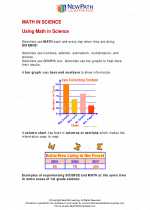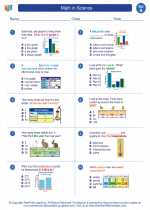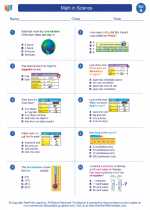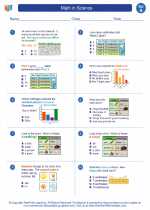Plants
Plants are living organisms that belong to the kingdom Plantae. They are multicellular eukaryotes that have cell walls made of cellulose. Plants are essential for life on Earth as they provide oxygen, food, and habitat for other organisms.
Characteristics of Plants:
- Photosynthesis: Plants are autotrophic organisms that produce their own food through the process of photosynthesis. They use chlorophyll, sunlight, water, and carbon dioxide to make glucose and oxygen.
- Cellular structure: Plants have specialized cells such as xylem and phloem for transporting water, nutrients, and food throughout the plant.
- Reproduction: Most plants reproduce sexually through the production of seeds, while some can also reproduce asexually through methods like vegetative propagation.
- Growth and development: Plants have a life cycle that includes germination, growth, flowering, and seed production.
- Adaptations: Plants have evolved a wide range of adaptations to survive in different environments, such as thorns, spines, and waxy coatings to reduce water loss.
Parts of a Plant:
A plant consists of various parts, each with specific functions:
- Roots: Absorb water and nutrients from the soil and provide support for the plant.
- Stems: Provide structural support and transport water, nutrients, and food throughout the plant.
- Leaves: Site of photosynthesis and gas exchange, where oxygen is released and carbon dioxide is absorbed.
- Flowers: Reproductive structures that produce seeds and fruits.
Types of Plants:
Plants can be classified into different groups based on various criteria:
- By Lifecycle: Annuals, biennials, and perennials.
- By Seed Type: Gymnosperms (conifers) and angiosperms (flowering plants).
- By Habitat: Aquatic, terrestrial, and epiphytic plants.
Importance of Plants:
Plants play a crucial role in the ecosystem and have numerous benefits:
- Produce oxygen through photosynthesis.
- Provide food for humans and animals.
- Contribute to medicine, clothing, and shelter.
- Help in maintaining ecological balance and preventing soil erosion.
Study Guide:
Here are some key points to remember when studying about plants:
- Understand the process of photosynthesis and its importance.
- Learn about the different parts of a plant and their functions.
- Explore the life cycle of plants and the factors that influence their growth.
- Identify the adaptations of plants and how they help in survival.
- Be familiar with the various types of plants and their characteristics.
- Appreciate the significance of plants in the environment and human life.
[Plant] Related Worksheets and Study Guides:
.◂Science Worksheets and Study Guides First Grade. Math in Science
Study Guide Math in Science - 1st grade level
Math in Science - 1st grade level  Worksheet/Answer key
Worksheet/Answer key Math in Science - 1st grade level
Math in Science - 1st grade level  Worksheet/Answer key
Worksheet/Answer key Math in Science - 1st grade level
Math in Science - 1st grade level  Worksheet/Answer key
Worksheet/Answer key Math in Science - 1st grade level
Math in Science - 1st grade level 

 Worksheet/Answer key
Worksheet/Answer key
 Worksheet/Answer key
Worksheet/Answer key
 Worksheet/Answer key
Worksheet/Answer key

The resources above cover the following skills:
EARTH AND SPACE SCIENCE
Earth’s Place in the Universe
Observe seasonal patterns of sunrise and sunset to describe the relationship between the number of hours of daylight and the time of year (e.g., more hours of daylight during summer as compared to winter).